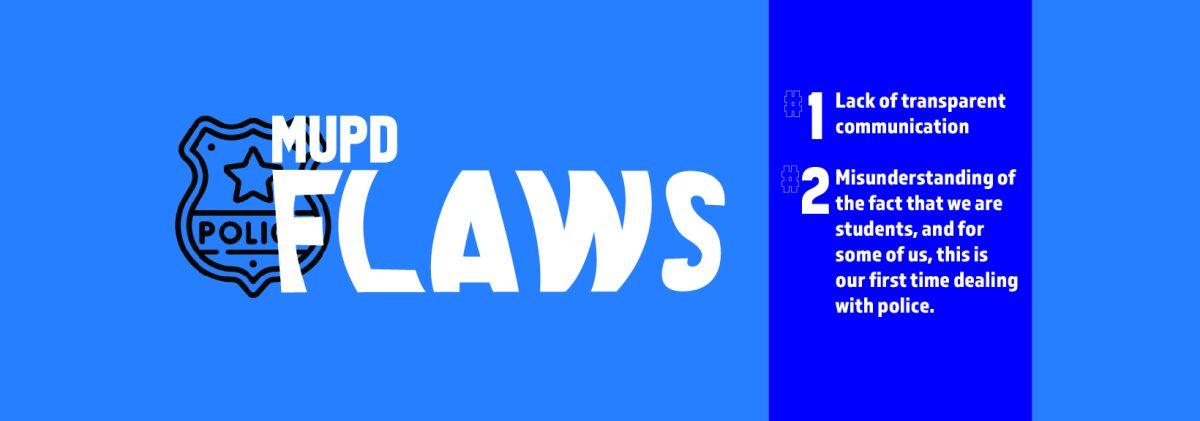I thought my first women’s and gender studies class would be an hour and a half of complaining about men twice a week and an easy A at the end. I was wrong.
I walked into the classroom where all the tables were arranged into a large U-shape and students of all different genders and races and abilities filled the seats. Professor Julie Elman, who looked not much older than the students, walked to the front of the U and handed out a thick syllabus. As I looked through the list of reading, I knew this was not going to be easy. I remember going home and sitting there with my fat first reading assignment, full of psychoanalysis I didn’t understand sprawled all over my kitchen table, and I thought _“What did I do to myself?”_ Laura Mulvey just didn’t flow like Harry Potter.
But the next day, I went to class. Professor Elman, who I now call “Dr. E,” got up and began speaking — no PowerPoint, no handout. She just began speaking. She wrote some keywords on the chalkboard. She explained some points. She made some jokes. She’d get excited about a point and run back to the board and draw some arrows connecting ideas and add some more. And she began asking questions to which she demanded answers. No matter what anyone said, no matter how informed or uninformed, she’d interact with their comment and get this idea ball rolling where then the next student’s hand would pop up and they’d speak, and then the next student’s face would light up and they’d speak, and then a bunch of other hands would shoot up and suddenly, in all of this hand-raising and questioning and answering, Laura Mulvey became as understandable and as exciting as Harry Potter.
I’d never experienced anything like it. I’d never experienced a teacher who made their classes so engaging with impassioned discussion and healthy debate. It’s why now, as a senior at MU, I’m in my third class with Dr. E. It’s why I get excited to go to her office hours. It’s why I never skip her class to take a nap. It’s why can’t get enough of learning from her.
It’s also why today, I’m surprised and angry. You see, Dr. Julie Elman’s teaching methods have recently been under attack. A student from her Introduction to Women’s and Gender Studies course spoke with the conservative education blog Campus Reform about how she was “required to watch a sexually explicit movie.” The movie in question is “Tongues Untied,” a 1989 quasi-documentary discussing the racial politics of the gay community.
As a disclaimer: I’m not in this specific class. But, I’ve spoken with a number of students who are, and I’d say I’m pretty familiar with Dr. E’s teaching by now.
So from my own and other students’ viewing of the film, it’s fair to say that yes, the film is graphic. Yes, the film is controversial. But the graphic and controversial nature of the film — like everything Dr. E puts on her syllabi — has a purpose.
The “investigative reporter” at Campus Reform didn’t seem to ask about that. He also must have forgotten to investigate the syllabus, which the student has possessed for 10 weeks since the class began, so any student could plan ahead for triggering content. The reporter also omitted that Dr. Elman emailed the class the night prior to the in-class viewing and told them to read about the film so they understood the film’s controversy, so the content wouldn’t shock any student. And, the reporter didn’t mention that the film took the entire class period, so there hasn’t been time to discuss the documentary yet — that critical time where the content suddenly makes sense was supposed to be Friday, but the discussion was cancelled following the student’s public criticism.
Those details better explain the context here, but those details don’t explain the issue. The issue for me is that the article paints Dr. E as if she’s some erratic liberal commie who demands all her students be erratic liberal commies to get an A. The student described this viewpoint saying, “Personally, I really do love this professor and the TAs — they’re all very nice and very helpful — but it’s like I have to act a certain way to get a desirable grade.”
That couldn’t be more false. Dr. E doesn’t require you to think a certain way to get a good grade in this class. Absolutely not. What she does require is that you engage with the material. What Dr. E does require is for you to be challenged. Everything Dr. E teaches is nuanced, complicated and thought-provoking. She does not teach a math class that produces a “correct” answer at the end that has little application to your everyday life. Instead, Dr. E teaches about the very real, very emotional parts of our day-to-days that make up our very messy and complex lives. But Dr. E also teaches you to find your voice in all of it.
When I spoke to other students who had her, I realized I was not alone in my awe and appreciation of Dr. E.
Lydia Singh has taken multiple classes taught by Dr. E, including the intro course this semester, and said: “It is amazing that every time I walk out of one of Dr. Elman’s classes, I can honestly say that I have learned something new that changes how I see the world. Her immense knowledge and her desire to validate all experiences in her classes — even those that may potentially contrast from her own — is something that every educator — but actually, like every person on this earth — should strive for.”
Ruby Ficklen took her class freshman year and said, “(Dr. Elman) taught me to critique and then look at my critique and dig deeper. Her class and her curriculum changed the lens with which I have viewed my education ever since. I don’t think I have ever received a better explanation of intersectionality, four years into my education later. Frankly, I cannot fully express the difference it has made.”
Jes Philbrook, the teaching assistant for the introduction course two years ago, attested Dr. E “thinks long and hard about the films and readings she assigns.” And with this specific film, other students understood the intent of showing it.
Jim Farley is in the introduction course this semester and said the film depicting men “being excluded from a ‘gay bar’ because of the color of their skin is unreal, especially considering the illogical belief that when an individual identifies with a marginalized group they are inclusive of all groups. This is something that, as a cis, het, white male, I don’t experience, and I relish any opportunity to learn about these experiences from the people who have experienced them. That’s a chance that not just this film, but this class as a whole, has afforded me.”
Hannah Feagan was also in the class and said: “Dr. Elman showed this documentary to start a conversation. All of the explicit content was not only powerful, but meant to educate. If you are uncomfortable because of said content, then you’re learning. It’s that simple.”
So when I read this specific student’s complaints about the film and Dr. E, I’m a little confused, but I think I can help. To the student who asks, “How is this pertinent to my education?” I think I have your answer. Before you complain to a conservative blog and get class cancelled, how about you go to class and find out. Go and listen to Dr. E. Go and listen to your fellow students. Go and raise your hand. Go and question those around you. Question yourself. Maybe then you’ll get your A, but you’ll also get a whole lot more.
_Jillian Deutsch, [email protected]_











